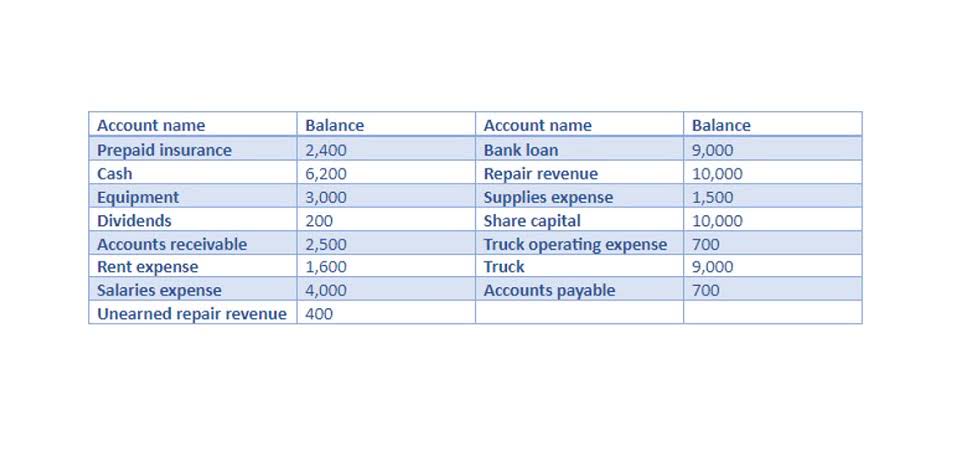
When it comes to managing business accounts, keeping track of checks that are outstanding is crucial. An outstanding check refers to a written check payment that has not been deposited or cashed by the payee. This means the liability for the funds remains with the issuer, putting their financial reporting and compliance at risk. One of the potential of having outstanding checks is the imposition of overdraft fees. When a check is presented for payment and there are insufficient funds in the account to cover https://capricornsiteservices.com.au/operating-cycle-the-operating-cycle-understanding/ it, the bank may choose to honor the check and charge the account holder an overdraft fee.
Traveler’s checks and money orders
- BestBooks Store records the check in its accounting system on the same day, reducing its cash balance by $500.
- On the other hand, US Treasury checks are for government-issued payments, such as Social Security, disability, or veterans’ benefits.
- Meanwhile, business owners are interested in the implications for cash flow and financial health.
- Disputes may arise if a payee claims non-receipt or loss of the check, requiring the issuer to issue a replacement, which increases administrative burdens and the risk of duplicate payments.
- Checks don’t last forever, and their validity usually depends on the check type and the issuer’s guidelines.
The handling of outstanding checks, therefore, is not just a clerical task but a significant legal responsibility. Meanwhile, business owners are interested in the implications for cash flow and financial health. Each viewpoint contributes to a comprehensive understanding of best practices in managing outstanding checks. Monitor Your Account RegularlyRegularly monitor your account balance to ensure sufficient funds are available for outstanding checks.
Financial Risks
Most checks are no longer valid after a six-month period and are usually considered stale after three years. But you may be able to cash a three-year-old government-issued or cashier’s check; they often have extended validity periods, depending on the issuer’s policies. Outstanding checks create liabilities for issuers, payees, and financial institutions.
What are some ways to avoid outstanding checks?
Overdraft fees can range from a few dollars to over $30 per transaction, depending on the bank’s policies. It is essential for individuals to keep track of their account balance and reconcile it regularly to avoid these costly fees. If an outstanding check is not cleared within a reasonable amount of time, it can result in inaccurate account balances, legal disputes, and even criminal charges for fraud or theft. It is important to regularly monitor your account and reconcile any outstanding checks to avoid these potential risks.


A delay in resolving payments can cause serious harm to a company’s financial position. The potential for fraud is high with outstanding checks, put more pressure on the accounting team to monitor all transactions vigilantly. The check is recorded immediately in the company’s cash ledger, reducing the balance. However, if the supplier delays depositing the check, the bank statement will not reflect this transaction until it’s processed. During this period, the business must recognize the check as outstanding when reconciling its accounts. Writing checks makes it possible for organizations and individuals to make payments without requiring instantaneous cash or electronic transactions to be completed.
- This is particularly critical for payroll checks, where labor laws mandate timely payment to employees.
- Ask the check’s originating bank if you’re unsure of how long you have to cash or deposit a check.
- The check register includes details such as the check number, date of issuance, payee, and the amount of the check.
- Put the date of the check, the amount, the payor, and the check number in your ledger that came with the checkbook.
- For instance, if a business writes a check to a supplier but the supplier doesn’t deposit the check immediately, this check is considered outstanding.
- Dormancy periods—the length of time a check remains uncashed before it’s considered abandoned—vary by state, typically from one to five years.
How Cynthia Went from Failing 6 Times to Passing the CPA Exam in 6 Months

Outstanding checks affect the accuracy of account balances, leading to potential misinterpretations of available funds. When a check is issued, the payer’s account balance is reduced by the check amount, even though the funds have not been withdrawn by the payee. This discrepancy can create an inflated perception of available cash, risking overspending or misallocation of resources. For example, a business may mistakenly assume it has more liquidity than it does, potentially leading to financial outstanding official checks strain or overdraft fees. By taking these steps, individuals can ensure that their outstanding checks are resolved in a timely and efficient manner.
A few years ago, an retained earnings international scam involving over $25 million worth of uncashed cheques that were supposedly meant for Nigerian pensioners gained public attention. The scandal alerted businesses globally to be cautious while issuing checks and ensuring prompt follow-up on uncashed ones. On the payor side, it creates the need to carefully track uncashed checks so that money doesn’t get spent on other things.
Guide to Unclaimed Property Uncashed or Unpresented Checks
In this guide, we break down how long different types of checks remain valid, what to do if you’re holding onto a stale check, and how to avoid check-related headaches in the future. Whether it’s a personal, government, or business check, understanding expiration rules can help you protect your finances and stay on top of your payments. For payees, uncashed checks can cause financial difficulties, especially if the check represents wages or reimbursements. Payees may face fees if they attempt to deposit a stale-dated check that the bank rejects. Disputes may arise if a payee claims non-receipt or loss of the check, requiring the issuer to issue a replacement, which increases administrative burdens and the risk of duplicate payments. It’s important to keep track of the amount of checks outstanding because they could be cashed at anytime.

Leave A Comment